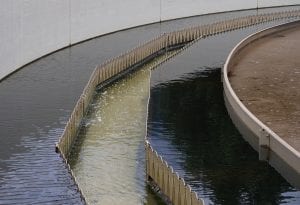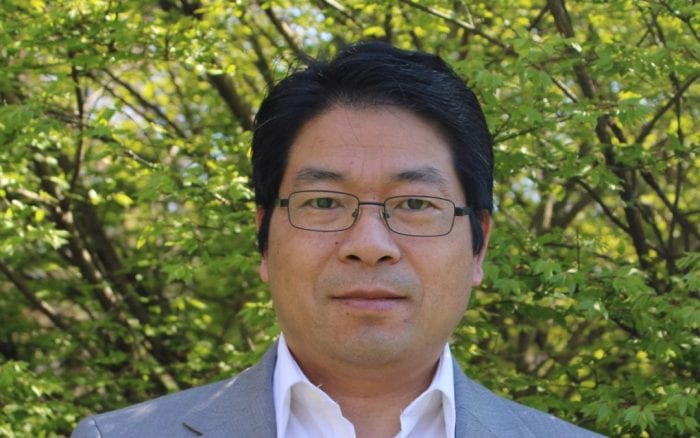Qingzhi Zhu, PhD, Associate Professor in the School of Marine and Atmospheric Sciences (SoMAS) at Stony Brook University, has received a SUNY Technology Accelerator Fund (TAF) award for his research to develop a low-cost, high-accuracy nitrogen detecting system for wastewater systems that has the potential to greatly improve testing processes and quality of water.
The TAF award provides seed funding for SUNY campuses to support potentially groundbreaking research on technologies. TAF helps faculty inventors and scientists turn their research into market-ready technologies by developing feasibility studies, prototyping and testing, which demonstrate that an idea or innovation has commercial potential.

Nitrogen pollution from septic tanks has been identified as the single largest contributor to deteriorating groundwater quality on Long Island. Advanced onsite wastewater treatment systems are needed to remove high levels of nitrogen. Regulators need nitrogen sensor for long term assurance of system performance, however, none of the existing nitrogen sensors are suitable for the advanced septic systems due to their frequent maintenance, high-cost and low accuracy.
With support by Stony Brook’s Center for Clean Water Technology, Zhu and colleagues have created a low-maintenance sensor that has the potential to help manufacturers, homeowners, and governments know that the systems are performing as intended to protect water sources.
His method involves using very small qualities of inexpensive and innocuous chemical reagents to selectively separate and detect nitrate/nitrite and ammonium from wastewater in a compact sensor unit. The sensor is designed for long-term deployments in wastewater systems with low maintenance and remote data transmission. It can be used to measure nitrate/nitrite and ammonium/ammonia in wastewater, water treatment plants, advanced septic systems and in surface and groundwater with minor modifications. The sensor won the phase II of EPA’s Advanced Septic System Nitrogen Sensor Challenge, and it is now undergoing a 6-month ISO ETV 14034 field verification test sponsored by the US EPA. For more information about the technology and it’s stage of development, see this webpage.
“Our nitrogen sensor is the only sensor that is engineered to meet residential and municipal wastewater market requirements with high accuracy and low cost,” says Zhu. “The sensor can operate remotely and unattended in wastewater for several months and has great potential to be commercialized. The TAF fund will enable us to improve our current sensor prototype to a commercial readiness level, advancing our nitrogen sensor from laboratory to marketplace. We are extremely grateful for this support.”
Zhu receives a $50,000 grant with the TAF award. SUNY announced that he and three other SUNY professors are TAF awardees. For more information about the latest TAF awards, see this press release.





